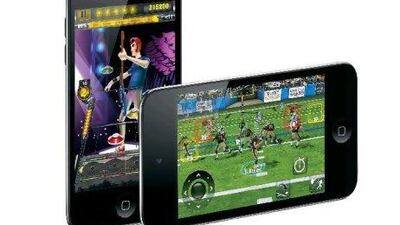Excitement in the offices of the publication I edited was at fever pitch. It was 2000, and MP3 magazine (and how ridiculously quaint does that sound now?) took delivery of a Rio 600, the very latest portable digital music player. It held a whopping one hour's worth of tunes. I spent a few hours fiddling with it, wondering if this was indeed the future, and then went back to listening to Coldplay's debut album from start to finish on my Discman. Not long afterwards, MP3 magazine closed. CDs were still de rigueur, and while downloading mp3s was becoming quite cool, waiting 10 minutes to do so via a dial-up connection - and then working out how to get the tracks on to the nascent digital music players - kind of killed the magic.
At MP3 magazine we were, of course, unaware that Apple was preparing a device that would not only kill the CD, but achieve something far more impressive. It would change not just the way people listened to music, but what they listened to. And it was called the iPod.
Since Steve Jobs's death on Wednesday, there have rightly been many plaudits for the multitude of Apple products developed under his watchful eye - all of which have changed the way we communicate, work and enjoy ourselves. And though the product launches over which he presided have always been prone to hyperbole, when Jobs said at the launch of the iPod in October 2001 that "listening to music will never be the same again", he was absolutely right. Forget an hour's worth of music, the Apple device originally held 1,000 songs - or, on average, 100 CDs. And while the prospect of "your record collection in your pocket" was exciting and convenient - Jobs's stipulation that every song shouldbe accessible in three button presses or less made the whole experience a complete joy - it was actually a small feature in this little white box that really changed music habits: Shuffle.
All of a sudden, people stopped listening to albums all the way through. They let their little white box choose which song from their extensive collection would come up next (and by 2003, iPods could hold 20,000 songs). Tracks from the deepest, darkest recesses of a long-forgotten artist's back catalogue sat alongside the latest pop hits. And when, in 2003, the iTunes store opened up a legal and easy way for people to purchase and download individual songs to their iPods, the music industry quickly learnt habits had changed. An album would be pored over for, say, the five best tracks to download at US.99 cents (Dh3.67) a time rather than purchased in full. Album sales plummeted, while the song became key. People took a chance on a tune that intrigued them in a way they'd never do with a US$10 album. Which, in a way, is how it should be.
Such a seismic change wasn't entirely attributable to Apple. It helped that the roll-out of superfast broadband quickly made the iTunes store a pleasure to use rather than an exercise in clock-watching. The technology, as the inventors of the Rio 600 probably still remind people to this day, was already there - Apple merely refined it.
But it was a conversation with the Mercury Music Prize winners The XX that really confirmed, to me, the impact of the iPod. They formed their band at a London school in 2005, and slowly set about creating something new from the constituent parts of the music they were listening to. There were melodic guitars, but minimal beats borrowed from dance music. There were nods to the nascent dubstep scene, and R&B, too. The result was their debut album xx, a completely unique and, in the end, multi-award-winning record that had become that rare beast: an album to listen to from start to finish.
And when I asked the founder and producer Jamie Smith where this collision of sounds, styles and genres had come from, he referred me straight to his iPod. This was how the next generation of innovators and popstars were listening to and exploring music - no longer straitjacketed by CDs purchased from the indie section of a record shop, but enlightened by the 20,000 songs from across genre boundaries that cropped up on their gleaming white portable jukeboxes.
Ten years to the month after its launch, the iPod is no longer an essential part of everyone's music listening habits - but that's only because it's been incorporated into the iPhone. I now have an Android phone - but on a recent holiday I still took my battered old iPod simply because it's still so much fun to use. And the poor Rio 600? In a landfill somewhere, a quirk of history.

